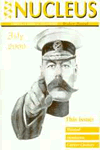Answers
- The human body is described as a tent (2 Pet 1:13) as it is temporary, a seed (1 Cor 15:42) as it will be transformed remarkably after death, and as a temple in the case of the believer (1 Cor 6:19) as it is honoured by God’s indwelling.
- Hezekiah’s tears and prayer changed God’s mind after Isaiah had told him he would die (2 Ki 20:1-6). A later generation who tried to elicit sympathy from God were rebuked by Malachi (Mal 2:13-14), because although they ‘flooded the Lord’s altar with tears’, their crying was not accompanied by contrite and sincere repentance.
- In order to be approved as God’s workmen, we should handle the word of truth correctly (2 Tim 2:15), avoid fruitless quarrels and godless chatter (2:14-16), flee the evil desires of youth , and pursue righteousness, faith, love and peace (v22).
- The beloved (Song 1:6) asked her lover not to stare at her ‘because I am darkened by the sun’. Her lover is not perturbed, and says ‘how beautiful you are my darling’ (Song 1:15).
Know Your Bible 35
- Who is likened to ‘the tossing sea, which cannot rest, whose waves cast up mire and mud’?
- According to Solomon, what degenerative changes accompany ageing, and why should we ‘remember our creator’ before they occur?
- ‘Not everyone who says to me 'Lord, Lord,' will enter the kingdom of heaven’ but only he who:
A ‘believes the one who sent me’
B ‘loves my Father who is in heaven’
C ‘does the will of my Father’































